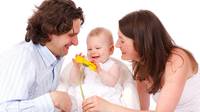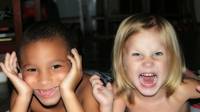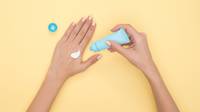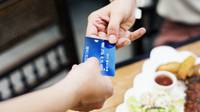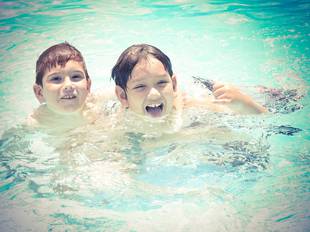
In the Philippines, summer time is vacation time for kids. The months of March, April and May coincide with school vacation. It is that part of the year when children spend most of their time playing, sightseeing and rollicking for fun. Whether they are in your backyard, in the park, in a public pool, in the beach or some vacation spot, you need to ensure their health and safety against the elements of their surroundings.
Here are some tips on how to keep your young children safe from injuries, illnesses and away from troubles:
Safety In The Playground
- Always check the swings, slides and other playground equipments before letting your kids play in them. Be observant of things like sharp and pointed objects, rusted parts, splinters, grease, which can cause injuries to your children.
- Make sure your small children cannot reach any moving parts that might pinch or trap any body parts.
- Choose plastic or rubber playground equipments if possible. Test them if they are strong enough for your child's weight. In case materials are made of metal, make sure they are cool enough to prevent your children's arms and legs from getting scorched.
- In the park, avoid areas that are too dry and dusty, and areas that are muddy or have stagnant water. These are the usual germs areas. Report them to proper authorities so that they can do remedial and maintenance works on such areas.
- Closely monitor your young children playing or better yet play with them. This way you can watch over and have fun with them at the same time.
Safety Under The Sun
- Babies under eight months of age should be kept out of direct sunlight. You can bring them out in a stroll but within a shade or under a sturdy tree.
- Dress babies and small children in lightweight clothing, preferably white, that covers the arms and legs, and use a brimmed hats. Don't dress them in dark clothes, as these would absorb heat and sunlight that could make them irritated.
- Children should not go out in the sun between 10 a.m. and 4 p.m. - that's when the sun's cancer-causing ultraviolet rays are strongest. Putting sunscreen is not an excuse to rollick with your children under the sun.
- The sun's heat could dehydrate your children in a matter of minutes. Make sure that your kids are sufficiently re-hydrated- drinking a glass of water or juice from time to time - every time they are playing under the sun. Don't wait until they feel thirsty because by this time they are already dehydrating.
- When children play under the sun they sweat profusely losing vital minerals in their body like potassium. Eating healthy snacks like fresh fruits can replenish minerals, help absorb and retain fluids and keep them refreshed.
Safety In The Water
- Whether in a beach resort or in your backyard pool, never leave children alone in or near the water, even for a moment.
- Make sure adults watching your children in the water can rescue a drowning child and know how to apply cardiopulmonary resuscitation (CPR) if necessary.
- It is good to enter your children in swimming training programs. But these swim programs should not be seen as a way to decrease the risk of drowning. Never allow your children, especially those younger than six years old, to swim alone even if they already know how to swim. There must be always be an adult within arm's length of a swimming child providing "touch supervision."
- Avoid inflatable swimming aids, such as rubberized "floatables." They are not adequate substitutes for approved life vests and can give you and your children a false sense of security.
Safety Against Illness
- Don't take your children in crowded places where they could easily catch airborne bacteria and viruses.
- Give them adequate vitamins for their protection against the elements when strolling or playing in an outside environment.
- Bring an essential first aid kit containing bandages, alcohol, "cure all" ointment, antiseptic soap and the likes.
- Keep a keen and watchful eye. When your children start having itches and rashes or start sneezing, be aware that they could have been in contact with a pathogen or something they are allergic to. Learn how to deal with situations like this by enrolling yourself in first aid classes. If you are not sure or if the symptoms persist, take him to the doctor.
- In going for location vacation and fun, bring your own refreshments and snacks. You can never be sure in the health and safety of buying food and drinks prepared and sold on site.
Safety Against Harmful Bugs
- Don't use perfumes or scented hair sprays on your children. Avoid dressing them in clothing with very bright colors or flowery prints. These could attract insects such as bees, wasps and gnats.
- Keep your food and drinks in a well-covered container, these also attracts flies and ants.
- Teach your children to avoid areas where insects congregates such as under rocks, hives, mounds, stagnant waters, tree holes, etc. Teach them to control their curiosity by asking your permission first before doing things concerning the object of their curiosity, especially with regards to living creatures and their habitats.
- If your child got stung by a bee, hornet or other stinging insects, never pull the insect away from your child's skin. Gently scrape it off using your fingernail from the opposite direction of the sting to remove the stinger away from the skin. Although rarely dangerous, bites and stings frequently cause pain. As a first aid, apply ice or cold compresses to soothe the pain.
- Certain insects like moths, butterflies, beetles and roaches spray or give off offensive secretion, which can be obnoxious, irritating or even poisonous. Wash affected body parts immediately.
- For venomous crawlers like centipedes, spiders and scorpions, which can cause severe pain and may be fatal, apply first aid or seek someone who knows how to handle it. The usual way is to place a tight band above the bitten area and place it lower than the rest of the body. Then take the child to the doctor immediately.







